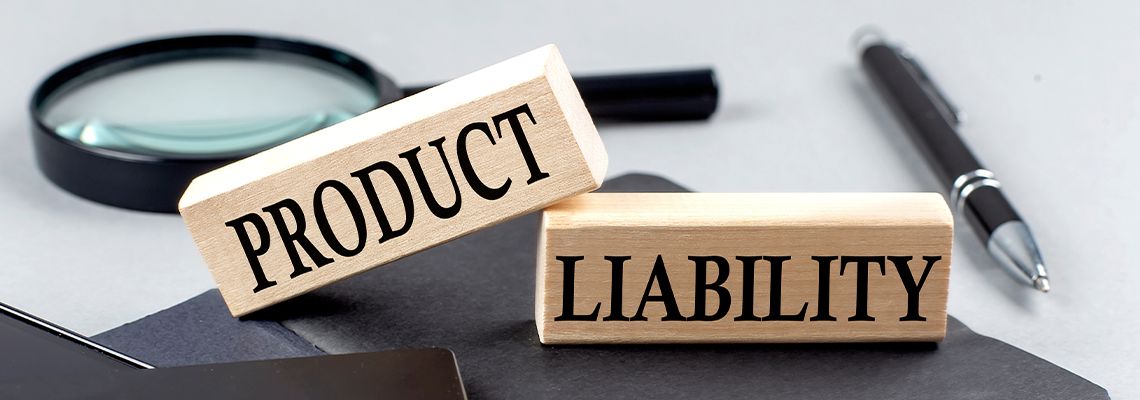
Whether it's a child's toy, a kitchen appliance, or a car part, every item you use should be reasonably safe. Unfortunately, that's not always the case. Dangerous and defective products injure thousands of people each year. When that happens, victims may have the right to file a product liability lawsuit to seek justice and compensation.
Texas law gives consumers the right to hold manufacturers, retailers, and distributors accountable when their products cause harm. If you've been injured by a faulty product, it's important to understand how product liability cases work and what steps you can take.
What Is Product Liability?
Product liability is the legal responsibility that manufacturers and sellers have for putting defective or dangerous products into the hands of consumers. These cases are part of personal injury law and are based on the idea that companies must take reasonable steps to prevent harm from their products.
When a product injures someone because it was poorly designed, made with errors, or sold without proper warnings, the injured person may have grounds for a lawsuit. Product liability claims help victims recover compensation for medical bills, lost wages, pain and suffering, and other damages.
Types of Product Defects That Can Lead to Lawsuits
Not every defective product qualifies for a lawsuit, but many do. Three main categories of product defects often result in personal injury cases:
Design defects: These occur when a product is inherently dangerous because of the way it's designed, even if it's made perfectly. For example, a chair that tips over too easily may be considered dangerously designed.
Manufacturing defects: These happen when something goes wrong during the production process, causing a product to become dangerous. A batch of contaminated food or a bike with a missing bolt would fall into this category.
Marketing defects (failure to warn): These involve products that don't come with adequate instructions or warnings about potential risks. If a medication doesn’t list known side effects, that could be a failure to warn claim.
Now that you know the types of defects that can lead to lawsuits, it’s also important to know who can be held liable in court. For more information, contact attorney Manny Guerra today.
Who Can Be Held Liable?
In product liability cases, more than one party may be responsible for the injury. Liability can extend to any business involved in the product's chain of distribution. These might include:
Manufacturers of the product or its parts
Suppliers or subcontractors
Wholesalers and distributors
Retailers who sold the item
You don't have to prove that every party in the chain was negligent. Texas law allows injured consumers to pursue strict liability claims, which means a company can be held responsible without proof of negligence if the product was defective and caused injury.
Common Examples of Dangerous or Defective Products
Defective products appear in almost every industry. Some of the most common types that lead to personal injury claims include:
Automobiles and auto parts: Faulty brakes, airbag malfunctions, or tire blowouts
Children’s toys: Choking hazards, toxic materials, or sharp edges
Medical devices: Hip replacements, surgical mesh, and pacemakers that fail
Pharmaceutical drugs: Undisclosed side effects or contamination
Household appliances: Fires caused by wiring defects or malfunctioning parts
Tools and machinery: Faulty power tools or missing safety guards
These products can cause serious injuries, including burns, fractures, internal damage, and even wrongful death. If you've been harmed by one of these or any other defective item, a personal injury attorney can help assess your options.
Transitioning From Injury to Action
The period after a product-related injury can be overwhelming. You may be dealing with medical appointments, missed work, or chronic pain. But once your immediate health is stabilized, it's time to think about what comes next.
Talking to a personal injury lawyer early on can make a big difference in your case. They can help gather evidence, communicate with the other side, and file a claim before time runs out. In Texas, the statute of limitations for product liability cases is generally two years from the date of injury, so it’s important not to wait too long.
What You Need to Prove in a Product Liability Lawsuit
To win a product liability case, you’ll need to show a few key things. Your lawyer will work with you to collect the right evidence and build a strong case. In general, the elements you must prove include:
The product was defective in design, manufacturing, or marketing
You were using the product as intended or in a reasonably foreseeable way
The defect caused your injury directly
You suffered actual damages, such as medical costs or lost wages
Texas law allows for both strict liability and negligence-based claims. Strict liability is often easier to prove because you don’t have to show the company was careless—just that the product was defective and caused harm.
Steps to Take After Being Injured by a Defective Product
Taking the right steps after a product-related injury can improve your chances of winning a personal injury case. Here’s what you should do:
Seek medical attention right away: Your health comes first, and you’ll need medical records as proof.
Keep the product and packaging: Don’t throw away the item. It could be key evidence.
Take photos and notes: Document your injuries, where and how the accident happened, and any warning labels.
Save receipts and records: Hold onto proof of purchase, doctor’s bills, and any other costs related to your injury.
Talk to a personal injury attorney: Get a legal opinion as soon as possible.
Compensation You May Be Entitled To
It’s important to know that in a successful product liability claim, you might be eligible for several types of compensation. These can include:
Medical expenses: Past, current, and future medical costs tied to your injury
Lost income: Wages lost due to time off work or reduced earning ability
Pain and suffering: Compensation for physical pain and emotional distress
Punitive damages: In some cases, courts award extra damages to punish reckless behavior
The amount you receive will depend on how serious your injuries are, how much they’ve affected your life, and how strong your case is. Your personal injury lawyer can help estimate your potential recovery.
Product Recalls and Their Impact on Your Case
Sometimes, defective products are recalled by manufacturers or government agencies like the Consumer Product Safety Commission. A recall can be powerful evidence in a personal injury case, but it’s not required to file a lawsuit.
Even if the product that injured you wasn’t recalled, you may still have a valid claim. And if it was recalled, your lawyer can use that information to support your case and potentially identify others who were also harmed.
Contact Guerra Law Firm PC Today
No one should have to suffer because of a dangerous or defective product. If you or someone you love has been hurt by something that should’ve been safe, a product liability lawsuit might be the right path forward. Texas law offers a way for injured consumers to hold companies accountable and seek justice. Located in McAllen, Texas, Guerra Law Firm PC serves clients throughout southern Texas, so call today to schedule a consultation.


